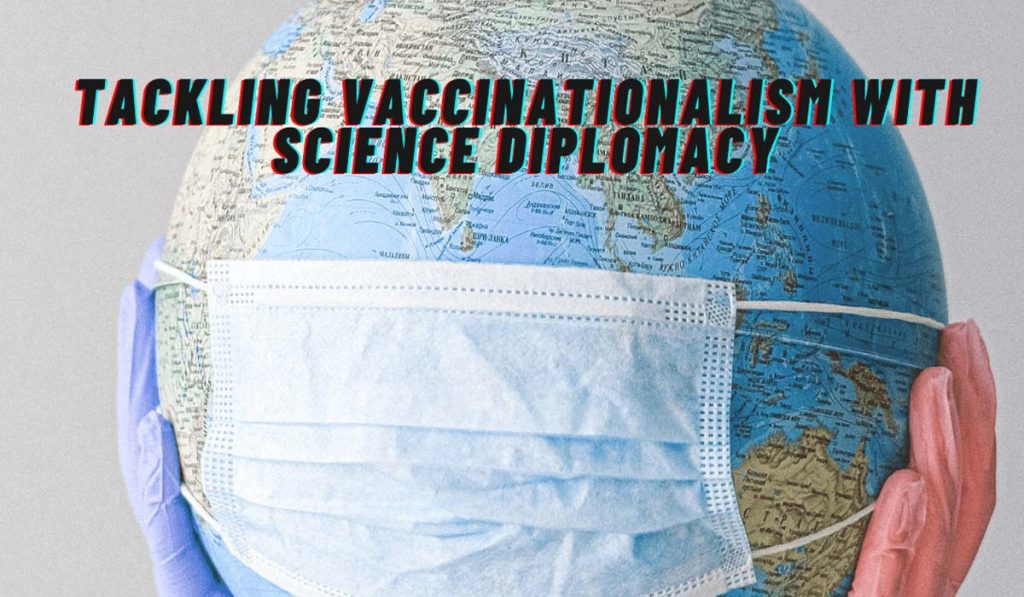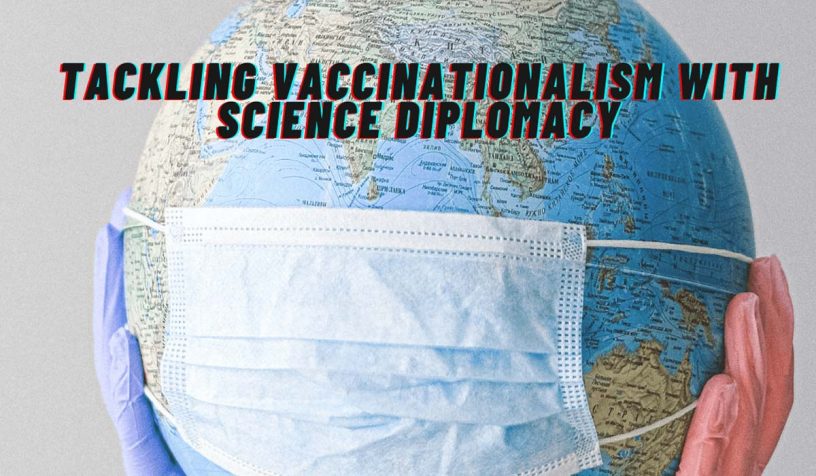
The zero-sum realpolitik approach being adopted by certain nations in accessing potential vaccines has deepened the distrust and divide in the world, says the author.
Author
Shreya Mishra, Junior Research Fellow at Jindal School of International Affairs, O.P. Jindal Global University, Sonipat, Haryana, India.
Summary
The balance of power in the modern world has been reflected in the scientific developments within a society and has been easily threatened by new developments within nations. The Nuclear arms race and the Space War witnessed between the United States of America and the erstwhile Union of Soviet Socialist Republic (USSR) during the Cold War period (1945-1990) are cases in point.
The current COVID-19 pandemic has turned out to be a catalyst that has hastened the threat to this delicate balance of power, already under strain with contentions over 5G technology, Artificial Intelligence, Big Data, etc. COVID-19 is not only novel in its virulence as a pathogen but also in its impact on the current international order marked by distrust, chaos and confrontation.
The growing interface between Science, Technology and International affairs with pervasive mutual impacts has expanded the dimension of diplomacy. Science has not just become a part of foreign policy of individual nations but also taken multilateral proportions in the form of climate change negotiations and agreements, collaborations in the domain of medicine, creation of UNESCO, collaborations in particle physics at CERN, etc. Science Diplomacy is thus, one of the key components of diplomacy and global affairs.
In 1987, Science Diplomacy played a crucial role in combating the Ozone hole, through the noteworthy initiative of the Montreal Protocol, so much so that the ozone layer has been on its path of recovery since 2018.
Today the pandemic offers a similar opportune moment for Science Diplomacy to help humanity tread over this crisis using international collaborations, strong partnerships and credible diplomacy.
Published in: Science Policy Forum
To read the full article, please click here.


